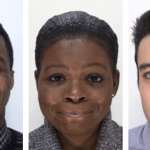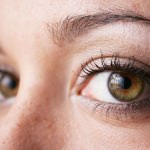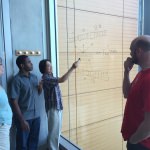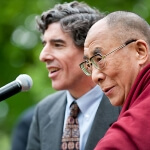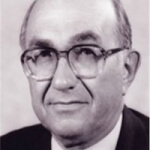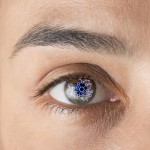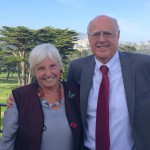Tag Psychology
Analysis: Gender differences in depression appear at age 12
An analysis just published online has broken new ground by finding gender differences in both symptoms and diagnoses of depression appearing at age 12. Read More
Alumna Nancy Armstrong shares stories of American women’s movement
UW-Madison graduate Nancy Armstrong is senior producer of MAKERS, a multimedia platform that includes the first documentary of the modern American women’s movement and the largest collection of women’s stories ever assembled. Read More
Telling the tale of midlife in the United States
MIDUS is a national longitudinal study on aging explicitly focused on midlife, including transitions from young adulthood to midlife, and from midlife into old age. Read More
Magnetic brain stimulation can bring back stowed memories
The lab of Brad Postle, a psychology professor at UW–Madison, is challenging the idea that working memory remembers things through sustained brain activity. Read More
Some brains are blind to moving objects
As many as half of people are blind to motion in some part of their field of vision, but the deficit doesn’t have anything to do with the eyes. Read More
A visual nudge can disrupt recall of what things look like
The connection between visual knowledge and visual perception challenges widely held theories that visual information about the world is stored abstractly. Read More
UW–Madison teams up with Madison police to foster officer well-being
The collaboration will focus on whether mindfulness-based practices can help improve officers’ abilities to manage their daily and occupational stressors. Read More
Learning like humans, machines extend the reach of research
A growing group of University of Wisconsin–Madison researchers is working on ways to use computers to make better use of human brain power. Read More
Deciding for others is more fun than doing it for ourselves, research shows
Making decisions can be tiring, but choosing a course of action for others is less draining and more enjoyable than when we do it… Read More
Media Advisory: Dalai Lama credentials
Members of the media can apply for credentials to cover the event “The World We Make” featuring His Holiness the Dalai Lama in Madison, Wisconsin, at the Overture Center for the Arts March 9, 2016. Read More
14th Dalai Lama to visit Madison for live-streamed event on global well-being
Gathering perspectives to promote global well-being, the Center for Healthy Minds at UW–Madison will host the event March 9. Read More
Brauer: Better diversity training is built on research, not intuition
Markus Brauer is teaching a public workshop Feb. 9 aimed at reducing prejudice and discrimination in the workplace, emphasizing strategies backed by both good intentions and sound science. Read More
Virtual reality makes its best users the most queasy
In a twist of virtual fate, people with the best 3-D vision are also the people most likely to suffer from motion sickness while using virtual reality displays. Read More
Leonard Berkowitz, influential social psychologist, dies at 89
Berkowitz was an emeritus psychology professor whose widely cited research explored influences on aggressive behavior, including the “weapons effect.” Read More
A compassionate approach leads to more help and less punishment
Understanding what motivates people to be altruistic can not only inform our own behaviors, it may also play a role in creating more just societal institutions. Read More
Faster brain waves make shorter gaps in the visual stream
"Blink and you'll miss it" isn't only for eyelids. The human brain also blinks, dropping a few frames of visual information here and there. Read More

